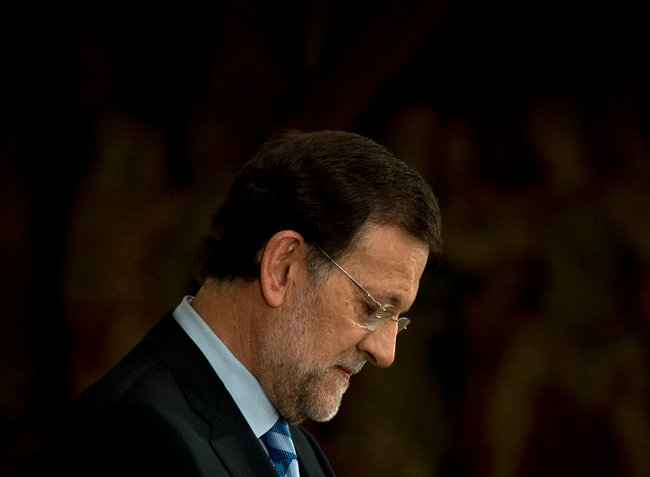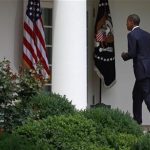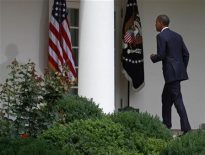MADRID — Spain’s agreement to take a European bank bailout pushes the country into a pivotal role in determining how — and if — the euro zone can survive its debt crisis. Central to any solution will be Prime Minister Mariano Rajoy, who spent his first six months in power denying that a bailout would be necessary.

Adding to European uncertainties about him, Mr. Rajoy tried to persuade Spaniards on Sunday that the decision to accept the $125 billion bailout was neither a concession to European pressure nor a recognition of the gravity of Spain’s crisis, and that it would not carry any of the onerous conditions of austerity that have roiled Greece.
“Nobody pressured me; I was the one who pressured to get credit,” Mr. Rajoy said at a news conference in Madrid. The agreement, he added, improved “the credibility of the European project, the future of the euro, the solidity of our financial system and the possibility that credit will flow again.”
Mr. Rajoy said that the rescue agreement should not be seen as the kind of bailout that Europe pushed on Greece, Ireland and Portugal, but as a line of credit that “isn’t that easy to obtain.”
Unlike his counterparts in Greece and Italy, Mr. Rajoy began his tenure amid great hopes and with a strong mandate after voters ousted the Socialists for their economic mismanagement and handed his conservative Popular Party its biggest parliamentary majority ever.
Mr. Rajoy told supporters when he was elected in November that Spain would “stop being a problem and instead form part of the solution” to the euro debt crisis, and he inaugurated changes that included an overhaul of Spain’s rigid labor market rules as the jobless rate hit 24.3 percent, the highest in Europe. The changes were welcomed by economists as the boldest attempt to date to loosen collective bargaining agreements.
Before pushing the changes through Parliament, Mr. Rajoy was caught on tape predicting that such a challenge to labor unions would lead to a general strike — which it did, on March 29, without lasting consequences.
Mr. Rajoy was also praised for toughening the penalties on regional governments that failed to meet their fiscal targets. Regional overspending accounted for two-thirds of Spain’s budget overruns last year.
But his government was caught flat-footed by the problems at Bankia, the largest of several savings banks saddled with unbearable mortgage losses after the construction bubble burst. Bankia was nationalized in early May, but still had to request $24 billion of additional capital. It was a slap in the face; the government had just estimated that the capital shortfall of the whole Spanish banking system was no more than $19 billion.
Spain opted for “the worst possible way of doing things,” Mario Draghi, the president of the European Central Bank, recently told members of the European Parliament, “because everybody ends up doing the right thing, but at the highest possible cost.”
After Spain agreed to the bailout on Saturday, Nicholas Spiro, managing director of Spiro Sovereign Strategy, a consulting firm in London that assesses sovereign debt risk, said, “The question right now is whether Spain and its creditors are able to agree on an acceptable level of intrusiveness and surveillance.”
He said that Mr. Rajoy had shown himself to be “a flip-flopper” over how closely European nations should work together, insisting that the International Monetary Fund’s role be highly circumscribed in the bailout, even though he had previously called on European governments to “cede more sovereignty” to a central fiscal authority. Three months earlier, Mr. Rajoy abruptly broke ranks with his European counterparts at a Brussels meeting by lowering Spain’s budget deficit target in the name of Spanish sovereignty.
Mr. Rajoy, 57, doggedly rose through his party’s ranks largely by maintaining ambiguous silences at crucial moments. But many see that approach as a problem at a time when the country is facing its most serious challenge since the transition to democracy in the late 1970s.
Beyond doing little to reassure Spaniards, Mr. Rajoy’s remoteness has giving rise, economists and European officials say, to a swirl of conflicting messages about the true health of the Spanish banks and the government’s own finances that left the country careening. “Waiting patiently is what has always worked best for him, and being in office hasn’t changed his view on that,” said Josep Ramoneda, a well-known philosopher and political commentator in Spain.
“Given the way Bankia’s problems were handled,” he said, “Rajoy’s credibility has fallen close to zero.”
Some of the government’s conflicting signals may have been intentional, political analysts say, as Mr. Rajoy’s government tried to avoid setting off a run on bank deposits and a mass flight of capital out of the country. The government danced around as it pursued aid — without actually asking for it until Saturday.
But there is consensus that Mr. Rajoy has failed as a communicator. The most prominent example came in April, when he was confronted by journalists in the lobby of Parliament after presenting his economic plans to senators. He promptly turned tail and headed for a garage exit, and a picture of the getaway was splashed across the front pages of Spanish newspapers the following morning.
In an autobiography, “In Confidence,” published during his campaign in September, Mr. Rajoy recalled being studious and quiet as a young man, following a father who climbed the ranks of the judiciary during the dictatorship of Francisco Franco. Mr. Rajoy went on to study law before qualifying to become a land registrar like two of his three siblings.
“I believe that I’m a lot like my father,” Mr. Rajoy wrote. “He is a perfectionist, somewhat introverted and very cautious.”
But Mr. Rajoy has become so removed from the public that Juan José Millás, a columnist, wrote a scathing critique of the prime minister in May that compared him to his sculpture in Madrid’s wax museum. “It’s hard to know which is the authentic one,” Mr. Millás wrote in the weekend magazine of the country’s leading daily, El País.
The statue, he said, “behaves like the original: it doesn’t answer, it’s there without being there, and the expression on its face never changes.”





